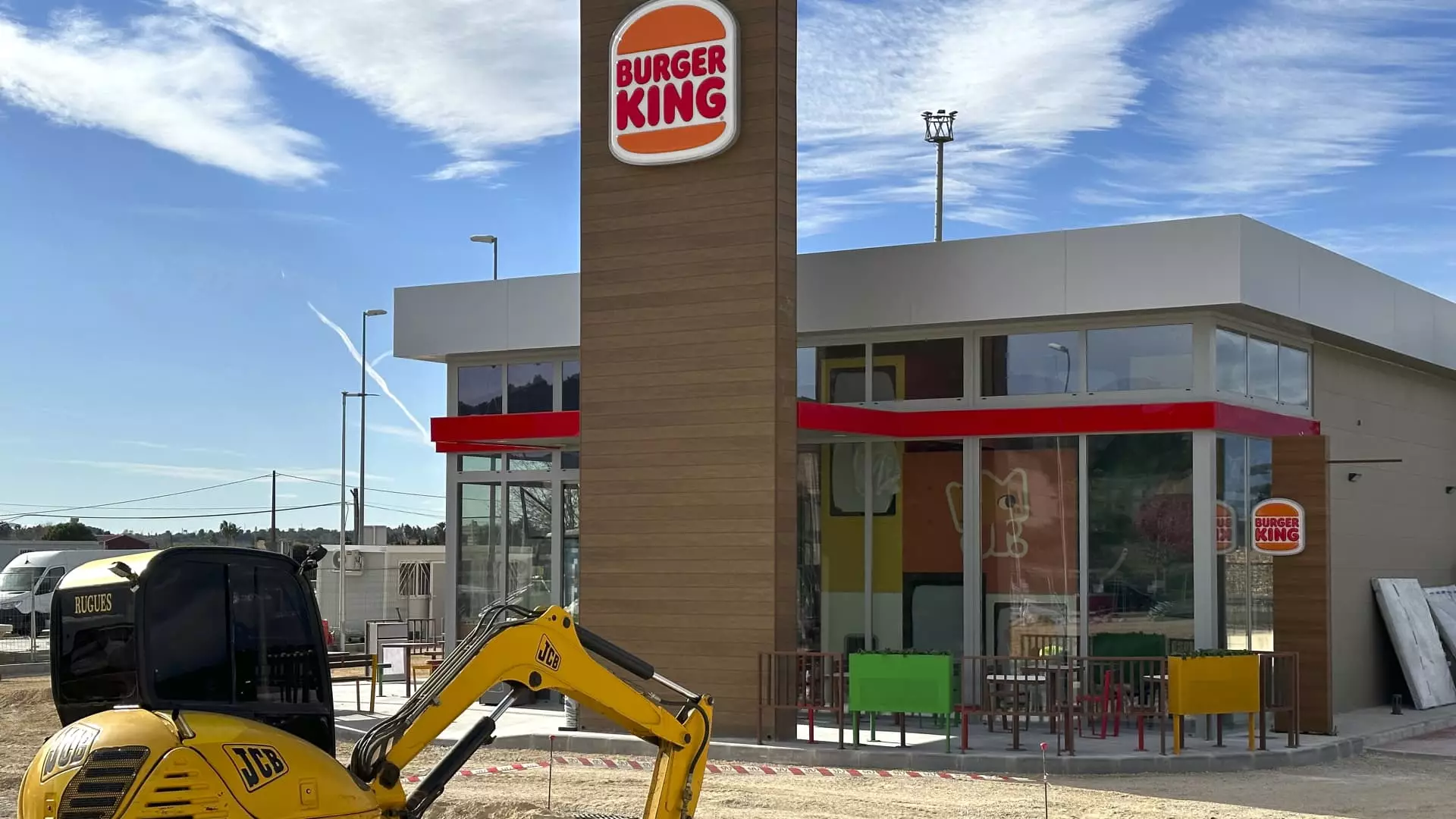Restaurant Brands International (RBI), the parent company of well-known chains like Burger King, Popeyes, Tim Hortons, and Firehouse Subs, reported its third-quarter earnings with results that fell short of market expectations. Analysts had predicted better performance, but RBI faced challenges across its major chains. The company’s shares dipped by approximately 2% in early trading following the announcement, highlighting investor concerns regarding its growth trajectory.
For the third quarter, RBI reported earnings per share (EPS) of 93 cents, slightly below the anticipated 95 cents. Revenue stood at $2.29 billion, missing the expected $2.31 billion mark. These financials indicate a broader struggle within the fast-food sector, as many chains grapple with consumer behavior and changing market conditions. The growth in worldwide same-store sales was minimal at just 0.3%, a concerning figure that showcased the need for immediate strategic interventions across its brand portfolio.
The details of same-store sales are particularly telling. Notably, Burger King, Firehouse Subs, and Popeyes all reported declines in their home markets, while only Tim Hortons displayed moderate growth with a 2.3% increase, albeit below expectations. The disparity in performance raises questions about the competitive positioning and marketing effectiveness of each brand, especially as consumers reassess their dining habits due to economic pressures.
Burger King’s decline of 0.7% in same-store sales was especially concerning, as analysts had projected a flat performance. CEO Josh Kobza acknowledged that the chain is in the midst of a transformation. However, economic conditions and shifting consumer preferences are posing significant barriers to recovery. The re-emergence of “value wars” amid rising competition further complicates Burger King’s efforts to re-establish itself in the marketplace.
Popeyes experienced a severe decline of 4% in same-store sales, starkly contrasting with expectations of a slight gain. The chain has implemented various initiatives, such as promotional discounts on chicken meals, yet consumer traction remains elusive. This highlights the pitfalls of aggressive discounting strategies in an already competitive environment.
The broader consumer spending context cannot be ignored. RBI highlighted a noted slowdown in restaurant spending over the summer months, reflecting a cautious approach from diners who are managing household budgets tight amidst fluctuating gas prices, steady inflation, and looming interest rate fears. As Kobza remarked, improved consumer sentiment might be in play, suggesting a potential rebound if the market conditions stabilize.
As of October, there have been signs of improvement in same-store sales trends, with early reports suggesting positive low-single-digit growth. The optimism seems rooted in enhanced marketing campaigns and promotions that resonate more effectively with the target demographic. It’s imperative for RBI to sustain this momentum, leveraging promotional efforts that capitalize on consumer sentiment and economic recovery.
On the international front, RBI’s same-store sales growth of 1.8% fell short of the expected 2.2%, reiterating that the company’s performance isn’t solely defined by domestic struggles. The insights reveal that while some brands thrive in specific markets, overall brand sentiment may be lacking. Tim Hortons continues to be a robust contributor to RBI’s revenue stream, but even this chain faces challenges in meeting heightened expectations.
Moreover, RBI’s net income attributable to common shareholders remained stable year-over-year at $252 million, or 79 cents per share, displaying the company’s ability to maintain profitability within a tough environment. However, the reduction in its forecast for full-year system-wide sales growth—from a range of 5.5% to 6% down to 5% to 5.5%—signals potential caution among investors and a need for strategic realignment.
Going forward, RBI must sharpen its focus on brand differentiation and cohesive marketing strategies to navigate the shifting landscape. Improvements in sales performance should be accompanied by rigorous evaluation and adaptation of business models to meet evolving consumer preferences. Additionally, continued investment in value-driven promotions may offer short-term relief, but long-term success will hinge on the company’s ability to innovate and enhance customer experience.
As RBI assesses its current position, the strategic direction taken in response to Q3 challenges will be critical. By identifying market opportunities and addressing consumer concerns head-on, RBI can enhance its competitive edge and set the stage for a more resilient future in the fast-food industry.

